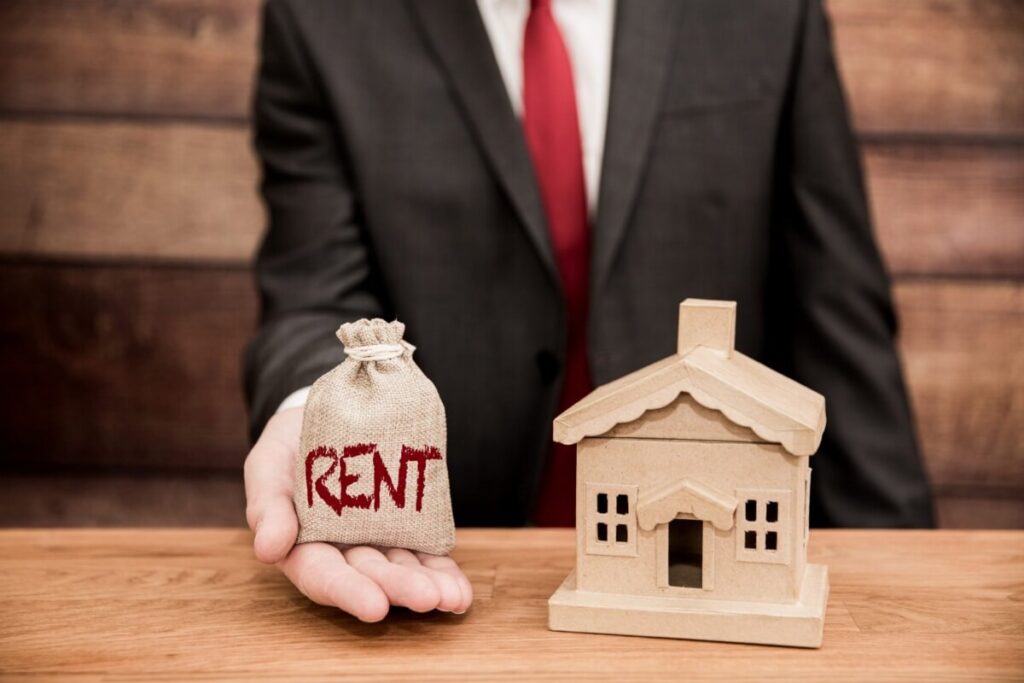One of the most important decisions to make when becoming a landlord is to decide how much to charge for rent. At a minimum, you want to cover all of your expenses and at least break even. Real estate is a long-term investment and you don’t want to miss out on revenue by setting prices too low or too high. The clock is running and if you miss out on revenue, that’s time and money you can’t get back. Here are some helpful tips for calculating your rent rate:
Too high or too low

Just because you have a large mortgage payment or maybe even a high-interest rate, doesn’t mean you get to charge whatever you want. A common misconception is that landlords can just increase rent whenever they want, however high they want, but it doesn’t work that way. If you set your rent too high, it’ll take a lot longer to find a tenant and every day a rental unit sits vacant is a day you’re losing money.
There are also risks in charging too little. Even though you’ll be able to fill the unit quickly, you’ll be missing out on revenue and as every property owner knows, there are unforeseen expenses that can be quite costly. You’ll want to earn every penny you can in case of a very expensive rainy day. Some states and cities also have rent control and anti-price gouging laws that restrict how much a landlord can increase the rent when a tenant is already living in the unit. This means you may end up with a tenant staying in the unit because it’s a good deal while you will be unable to increase the rent rate to the market rate.
What to Consider
Rent rates aren’t just about plugging numbers in a calculator based on your costs and how much you want to make in profit. There are a number of unpredictable circumstances within the local and global economy that impact how much you can charge for rent. The basic functions of supply and demand still exist with housing. If you are renting a unit in a location with a declining population, it’ll be difficult to increase your rent. If you are renting in a region with a growing economy and institutions that create stability like universities, you will likely be able to increase your rent rate regularly.
It’s not just the existence of jobs and a strong local economy that impacts how much you can charge. Another factor is how much people earn in the region. If you’re in a high-salary, high-productivity region, you will see a high area median income. This is a good indicator that you will be able to charge higher rents.
The basics
There are some fundamentals that can help you get to a good starting point. The rental rate of a property is typically between 0.8% and 1.1% of the value of the home. If your home is valued at 300k, then rent would hypothetically be between $2,400 and $3,300. This method doesn’t work as well when you start going into the extreme highs and lows of value. If your property value is much lower than the market rate, then you’ll want to charge a little more and if your property is on the high end, you’ll probably want to charge a little less.
Look at the comps
Take stock of your rental unit. Consider the number of rooms, bathrooms, square footage, yard space, amenities, appliances, and the general condition of the unit. Once you have all of this down, you can search online to see what landlords are charging for similar units within the area. Just remember that it’s possible that everyone within the region is using bad data and basing it off prices others set with bad data. In order to ensure you charge the right rate, you can use property management software like Ziprent which has much better aggregate data on the rental market.
Rent Adjustments
It’s important to remember as well as the end of lease agreement is an opportunity to adjust the rent for both the existing tenant and the new tenant. Regardless on the rental market, the rent should at least adjust for inflation if not additional market forces.
Furthermore, remember to factor in pro rated rent for the existing tenant moving out of the rental and the new tenant moving in. We are multiple ways to adjust and pro rent the rate depending on the state.

